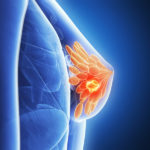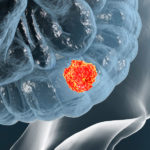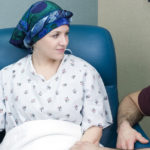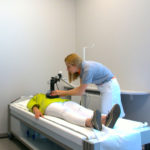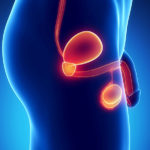 Wróć do poprzedniej strony
Wróć do poprzedniej strony
Colorectal cancer – Treatment, symptoms, diagnosis
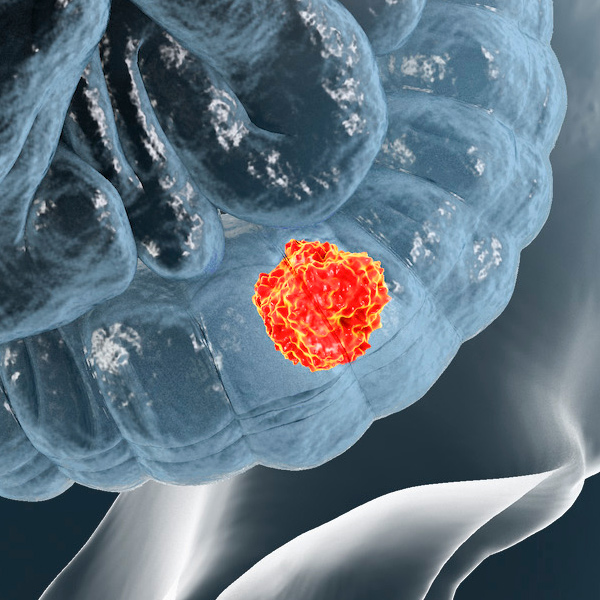
Colorectal cancer localizes in the distal part of the digestive tract. Most cancer cases develop from adenomatous polyps (or adenomas) – benign lesions of the intestinal mucosa. Adenomatous polyps take the form of small mucosal protrusions and usually develop asymptomatically. They occur in an average of 20-40% of people who have had colonoscopies. Glandular polyps can become malignant.
Colorectal cancer - how to treat it?
Integrative Oncology Care
At IMC, you will benefit from Integrative Oncology Care designed to speed up physical and emotional recovery, improve quality of life, better tolerate treatment-related side effects and prevent relapse.
An integrative program for cancer treatment can be applied to start from the initial to advanced stages of cancer, even during the stages when conventional medicine has nothing more to offer. The first step of the integrative approach is a precise and detailed assessment of the patient’s physical, emotional, and body state. The doctor collects the results of biochemical tests, molecular tests, clinical examinations, information about other illnesses, lifestyle, diet, and emotional state. Since the patient’s biological state changes during therapy, the treatment program is updated according to the laboratory and clinical tests. Every aspect of the treatment program is personalized to suit each patient’s individual needs.
Treatment includes:
- Integrative medical consultation and monitoring,
- Ten sessions of local hyperthermia,
- ozonotherapy (autochem transfusions),
- intravenous vitamin infusions, ultrasound, laboratory tests, psychotherapy, group workshops such as mindfulness, breathing, accommodation, and personalized nutrition.
Contact us:
1. Call us: +48 730 597 597
2. Send application form
- Go to Natural cancer treatment
- At the bottom of the page, select your disease
- Complete the form and we will contact you
The type of treatment depends on the stage of the disease. The three primary treatment options are surgery, chemotherapy, and radiation therapy.
The most effective method of treating cancer is surgery. Depending on the stage, surgery can be performed by colonoscopy (in very early stages). Minimally invasive surgery such as laparoscopy can also be applied. A laparotomy is a surgical incision into the abdominal cavity. A laparotomy is performed to examine the abdominal organs and diagnose any problems. Chemotherapy is most often used post-operatively to destroy any remaining malignant tumor cells, thereby reducing the risk of recurrence.
In addition, chemotherapy is used before surgery to increase its effectiveness by reducing the tumor size. Radiation therapy is rarely used for early-stage cancers. It is most often used in combination with chemotherapy to treat rectal cancer.
Numerous scientific studies have shown that using local hyperthermia in combination with standard treatment results in significantly higher efficacy. The use of hyperthermia makes it possible to remove the lesion for initially unresectable tumors. Hyperthermia reduces the risk of recurrence. In addition, chemotherapy and radiotherapy in combination with hyperthermia are much more effective than using these therapies alone.
Colorectal cancer - what symptoms?
Symptoms of colorectal cancer include:
- presence of blood in the stool or occult bleeding (i.e. a positive test for occult blood)
- chronic abdominal pain and cramps and excessive gas production
- change in the rhythm of bowel movements: diarrhea, constipation, change in the shape of stools
- loss of weight
- weakness, fatigue
- anemia
- lack of appetite
- abdominal bloating, feeling of incomplete bowel movements
It is worth noting that the disease is usually asymptomatic in the early stages. The appearance of the first symptoms and their severity depends mainly on the location and size of the tumor.
The transformation of polyps into malignant tumors takes about ten years. For this reason, doctors recommend screening to detect polyps at an early stage. Epidemiological data indicate that the incidence of colorectal cancer worldwide is 1.2 million. About half of the patients die from the disease.
Colorectal cancer - when to go to the doctor?
When you notice any of the symptoms mentioned above, visit your doctor urgently. Talk to your doctor about when to start screening. According to the recommendations, screening should begin around age 50.
Your doctor may recommend starting screening earlier or repeating it more often if there are risk factors (such as a family history of the disease) to your doctor?
Colorectal cancer - risk factors
Colorectal cancer carries risk factors that increase the likelihood of developing the disease, such as:
- Age. The vast majority of patients diagnosed with colorectal cancer are over 50.
- Inflammatory bowel conditions. Chronic inflammatory bowel conditions such as ulcerative colitis or Crohn’s disease increase cancer risk.
- Medical history with colorectal cancer. If you have had a history of colorectal cancer or adenomatous polyps, your risk of recurrence is much higher.
- Hereditary factor. Some types of cancer, such as Familial adenomatous polyposis syndrome, Lynch syndrome, or hereditary non-polyposis cancer, significantly increase the risk of developing colorectal cancer.
- Family history of the disease. The likelihood of developing the disease is much higher if there is a family history (parents, siblings, child) of colorectal cancer.
- A diet low in fiber and rich in fat, as well as a diet based on a lot of fat and red meat, is a disease risk.
- Sedentary lifestyle. Movement and physical activity significantly reduces the risk of colon cancer.
- Diabetes. People with diabetes and insulin resistance are at higher risk for colorectal cancer.
- Obesity. Obese people have a higher risk of colorectal cancer and dying from the disease than people of average weight.
- Smoking. People who smoke cigarettes have a higher risk of the disease.
- Alcohol. Alcohol abuse is associated with a higher risk of this cancer.
Colorectal cancer - diagnosis
If your symptoms indicate the possibility of colon cancer, your doctor may recommend one or more tests:
- colonoscopy: using an endoscope, the doctor can visualize the colon along its entire length. If there are suspicious lesions, a biopsy (taking a section for histopathological analysis) is performed, or if the lesion is small, the doctor may immediately remove the visible glandular polyp.
- rectal infusion: colon radiographs are taken after enteral administration of liquid contrast and air. This way, a complete picture of the distal part of the digestive system is obtained.
- virtual colonoscopy: after enteral administration of air, a CT scan of the abdomen is performed. After digital processing, a three-dimensional image of the colon is obtained.
Contact information
55-010 Żerniki Wrocławskie
Working hours
Have a question?
Use the quick contact form!
Contact information
55-010 Żerniki Wrocławskie
